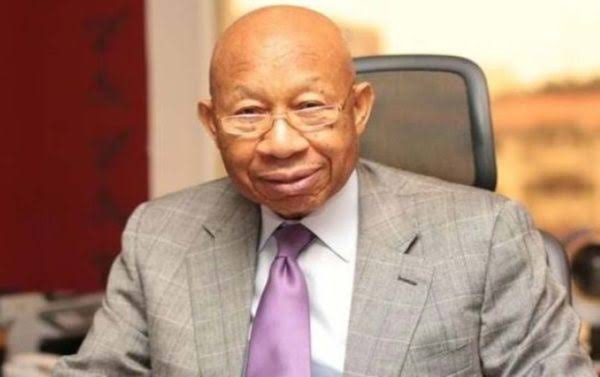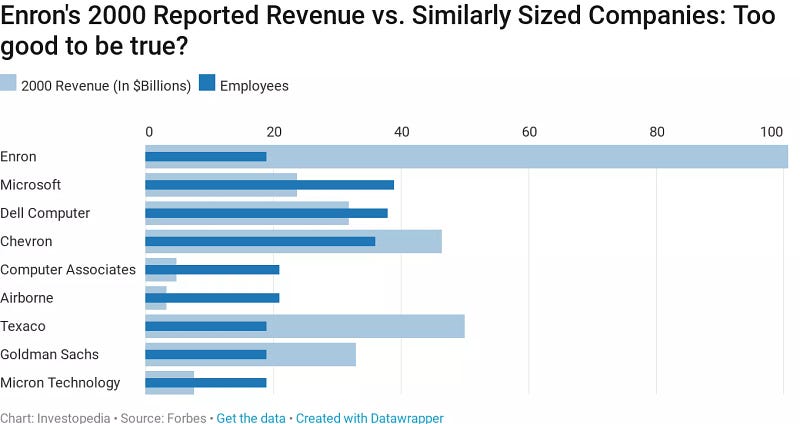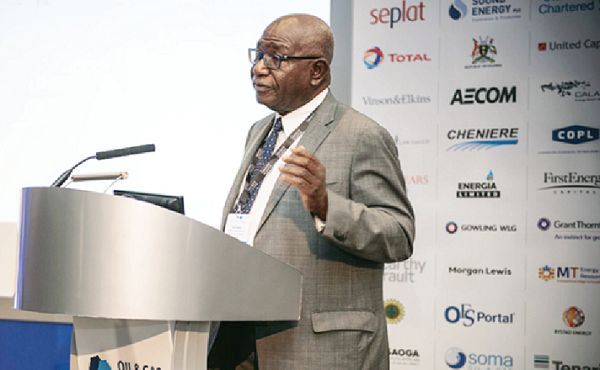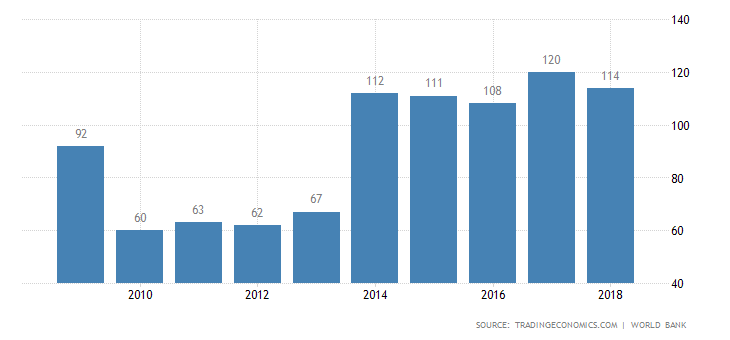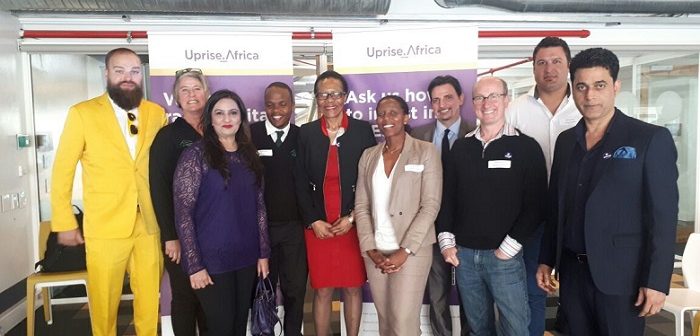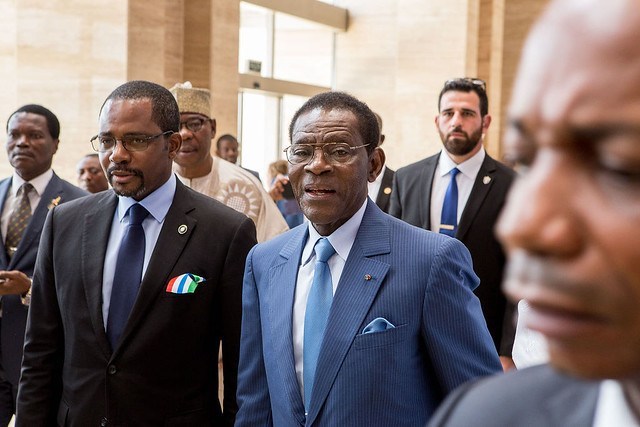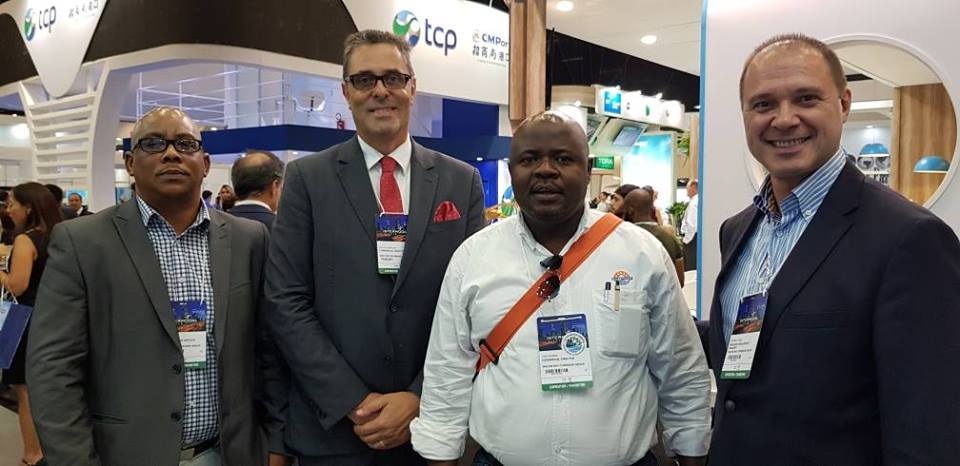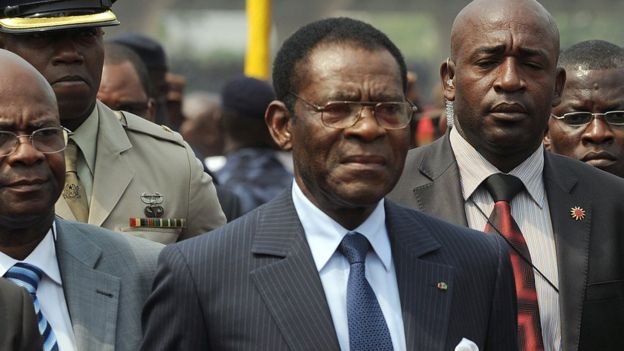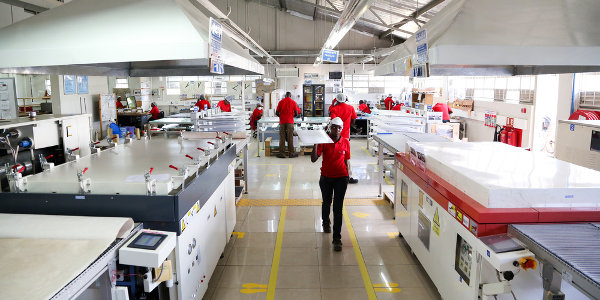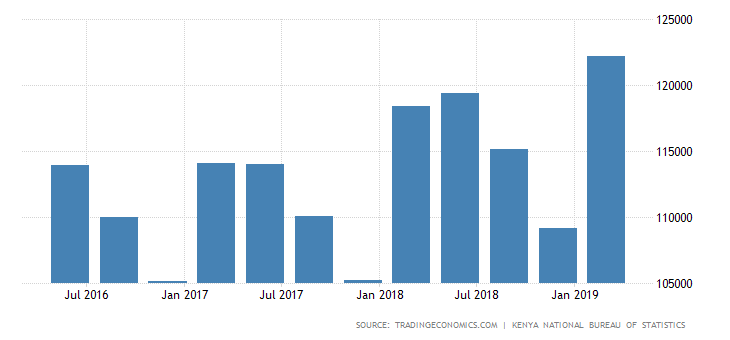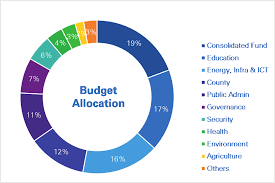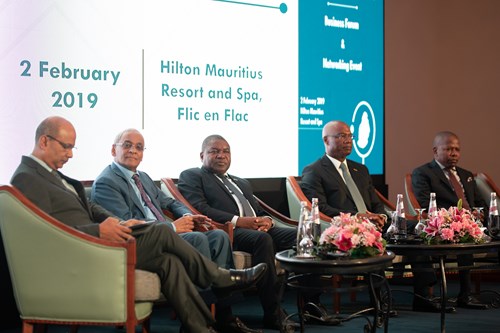Building A Sustainable Company: Why Most Companies In Africa Do Not Last Longer Than Expected
Over the past months, I have been crunching company data, carrying out extensive reviews, and scheduling series of meetings with executives and officers of companies listed on stock exchanges as well as ordinary going concerns, all in a bid to help them reinforce their board effectiveness.

While profit making remains top on most companies’ priority areas, the final straw that often breaks the camel’s back is the companies’ failure to fulfill the demands of good corporate governance practices. That is, even with the right business strategies, the complex organisational structures of most companies sometimes reach a confusing peak that demands that the company have a rigid wall of governance and culture if it is to still maintain some appreciable level of sanity, survive or continue to make profit or contain losses.
For businesses or people resident in Nigeria, 2019 came with the revelation from Moody’s, the leading credit-rating and financial analysis agency, that the main reason why a foremost commercial bank in the country — Diamond — conceded to a merger with Nigeria’s leading commercial lender — Access Bank — was because of poor corporate governance practices adopted by the former. To quote a portion of Moody’s report, Diamond Bank’s weak governance structure meant:
A highly compromised board
A board with little ability to assess the bank’s risk exposure and;
And a board that failed to rigorously interrogate management over strategy.
Moody’s report is not entirely far from my experience reviewing companies’ board effectiveness. The points made below are meant to serve as a sneak-peek into the damage wreaked by weak corporate governance practices in most companies in Nigeria,and by implication Africa.
Total Absence of Good Succession Strategies and Plans
This is the most obvious emptiness you would find in most Africa n companies. There is often total absence of good succession plans or policies for top executives and senior management of companies. A succession planning policy is a tool that helps a company to be prepared for planned or unplanned absences of a director or other top management, which, among other things, clarifies authority and decision-making, thereby maintaining accountability and ensuring stability within a company.
Furthermore, a good succession planning policy of a company should also be able to predict where the next crop of directors or CEO of the company would come from, in order to avoid a situation where the company is suddenly ambushed by the emergence of little known persons who usually find it difficult gaining grounds within the first few years of takeover from present management.
From Moody’s report on Diamond Bank merger, we were able to glean that sometimes in 2018, there was a letter from Nigeria’s market research and analysis news site Proshare. The content of the letter simply was that a former chairman of Diamond Bank, Seyi Bickerstheth gave some hints on why Diamond Bank’s CEO, Mr. Pascal Dozie, should be replaced. The letter re-echoed the same demand from one of the biggest investors in the bank — Carlyle Group’s Carlyle Sub-Saharan Africa Fund (CSSAF) DBN Holdings — who also wanted Mr. Dozie shown the exit door.
“A key shareholder CSSAF DBN Holdings demanded an immediate removal of management, principally the CEO, but the Board favoured a less drastic approach to minimise disruption and also enable the Board secure new leadership,” Bickerstheth wrote in the letter.
“After several discussions, the CEO of the Bank, who is also a representative of the second largest shareholder Kunoch Ltd agreed to resign effective January 3, 2019, but would not tender his letter to confirm his verbal notification.’’
This is a classic case of a poor succession planning policy in place. With a sound succession planning policy, it would have been easier to find a perfect replacement for the bank’s CEO who, from several reports, had already been compromised.
It is therefore necessary that every company in Africa, whether small or large should draft a detailed succession planning policy and appoint a committee (such as the governance, remuneration or nomination committee) to oversee affairs related to succession planning. Alternatively, the Committee should establish a succession plan that identifies critical executive and management positions, forecasts future vacancies in those positions and identifies potential managers who would fill vacancies. Vacancies will be filled from within or, in the event no viable candidate is available, on an “acting” basis while an external recruitment effort is conducted.
Weak Board Structures and Dynamics
This is unarguably, the strongest force that destroys a company even before it begins to make profit. From my experience, it seems most companies still revolve around powerful, god-like figures, without whom the company would struggle to exist. Truly so, if an individual is the strength of a company, in terms of finance or influence, it would be entirely difficult for the company to look stern when pointing fingers. But this is where the basic definition of a company resurfaces — a company is a person with a separate personality entirely independent of the promoters or the founders. A company with a very strong board structure or dynamics should be able to have these key essential features:
- The Chairman of the Board should not double as the MD/CEO of the Board.
- The Board shall consist of at least an executive, non-executive and an independent director in such a way that the number of non-executive directors shall be more than that of the executive directors. In fact, there is really no need appointing directors who are out of touch with practices in the relevant sectors the company are competing in. Apart from the fact that persons appointed to the board must be persons of proven integrity, they must also possess acute knowledge required of a person in that industry.
- A good succession planning policy should be mindful of the fact that an ideal replacement period for each non-executive director is usually three years, although an executive director could stay on the board for a maximum period of three years of 4 years each, while the maximum period for an independent director should be 3 years of three years each. On their parts, MDs/CEOs’ tenure usually have an ideal maximum period of 10 years, which may be broken into periods, not exceeding five (50 years) after the expiration of his tenure as MD/CEO.
- Quite obvious from my experience reviewing a number of companies is the practice of converting an existing non-executive director into an independent non-executive director. This practice is extremely unhealthy if the company is to survive. An independent director, in most cases, does not have any direct material relationship with the company; or in cases where they have some material relationship with the company, their equity interests in the company should not be more than 0.001% of the company.
- Another instance of a weak board structure is the practice of filling a substantial portion of the board size with family and friends, who have little or no contribution or experience to bring to the board. A standard practice demands that not more than two members of a family shall be on the board of a company at the same time. The expression ‘family’ includes a director’s spouse, parents, children, siblings, cousins, uncles, aunts, nephews, nieces and in-laws. In the same vein, no two members of a family shall occupy the positions of Chairman and MD/CEO or Executive Director of the company and Chairman or MD/CEO of a company’s subsidiary at the same time.
Moody’s still offers us a classic example from Diamond Bank’s merger with Access Bank in this regard. According to the credit-rating agency, Diamond Bank failed because it did not have enough independent directors (the objective truth tellers) on its board and this resulted in a lack of effective board oversight.
By the end of 2017, only one of Diamond’s 13 board members met the Nigerian SEC’s definition of independent (another had retired in August),” Moody’s noted
“We believe Diamond’s board failed to provide an effective check against the bank’s management team. Board independence is important because it makes it more likely that management strategies are subject to rigorous questioning, reducing the risk of directors ‘rubber stamping’ management decisions.”
The implication of this is not far-fetched. Mr. Dozie, whose family was the second biggest shareholder in the bank, directly controlling 5% and another 9% indirectly through its investment firm, Kunoch Ltd (14% in total) was only 4% off the Bank’s biggest shareholder, Carlyle Fund, which controlled 18%. This meant, of course, a huge overbearing influence of one family over how the business of the bank was run. A striking example was the fact that a member of the founding family held the CEO role between November 2014 and March 2019 when it merged with Access Bank. During this period, profits fell by 78% in 2015 and bank deposits shrank by 22% between year-end 2014 and 2017.
Poor Board Processes And Oversight
From my experience, it appears that most companies do not seem to have a sound grasp of issues surrounding board processes and oversight. To begin with, there are certain committees a company must necessarily form. Chief among them are the risk, audit and corporate governance or remuneration committees. The absence of any of these committees must necessarily lead to a weak governance structure in the company. Consequently, for a company to have effective board processes and adequate oversight, it should be able to have these key essential features:
- To make sure that there is some level of independence and checks and balances on the Committees, the Chairman of the Board/company shall not be a member of any of these committees stated above. All the committees must necessarily be headed by a non-executive director. In the same vein, the MD/CEO and other executive directors of the company shall not be members of the audit committee of the board as well as the committees on governance, remuneration or nomination.
- Only those knowledgeable in risk management or audit shall be appointed to these committees. And as a matter of good practice, the board shall not replace members of the Board Audit Committees and External Auditors (not internal auditors) of the company at the same time.
- The risk and audit committees must necessarily play some oversight functions on the company’s risk officer and internal auditor, and as a matter of good practice, both officers must report directly to the committees on risk management and audit respectively.
- Boards of Companies shall ensure that the company’s risk management framework provides for regular and independent reviews of the risk management policies and procedures as well as periodic assessment of the adequacy and effectiveness of the risk management functions.
Moody’s particularly drew out a line here. It said Diamond bank did not attract enough corporate borrowers who are a major moneymaker for banks and that, well, it loaned out more money to the oil and gas sector than the Central Bank of Nigeria thought was prudent (52% versus 20%). So when oil prices fell in 2015 and 2016, the bank came crashing with it. This is purely a case of inadequate oversight over the bank’s risk management department by the bank’s risk committee. This is so because Moody’s noted that Diamond Bank’s weak governance structure necessitated: a highly compromised board; a board with little ability to assess the bank’s risk exposure and; and a board that failed to rigorously interrogate management over strategy.
Little Or No Adherence To Policies on Transparency and Disclosures
Although most companies tout themselves to be pro-transparency and disclosures, this is not often the case in reality. From my experience, a lot of information is still being buried or swept under the carpet by companies’ top management, in connivance, sometimes with the board. This is worsened by occasions of conflict of interests necessitated by the directors’ participation in the equity of the company. A transparent board should be able to disclose information about the each director’s interest or shareholding in the company, as well as his directorship in an another company, if any. It should also be able to disclose the exact cumulative years of service of each director, and that of the external auditor at the end of every financial year.
Again, the most common challenge being faced by most companies on transparency in Nigeria revolves around issues of financial reporting. This is the stage where usually all the books are cooked, especially when the appropriate structures for checks and balances are weak. As a matter of best practices, companies should adopt the following around their financial reporting efforts:
- The board committee on audit must necessarily hold a meeting once in every three months of the financial year of the company and deliberations at such meetings must include, at least consideration of the quarterly reports of the internal auditor. The board committee on audit must as a matter of good practice, investigate all audit reports and resolve all issues arising from the reports.
- At least once in a financial year, the Board Audit Committee should endeavour to hold a discussion with the head of the internal audit function and the external auditors without the presence of management, to facilitate an exchange of views and concerns that may not be appropriate for open discussion.
- As a matter of standard practice, the tenure of an external auditor in a given company shall be for a maximum period of 10 years after which the audit firm shall not be reappointed in the company until after a period of another seven (7) consecutive years.
- Recall that it is standard practice that the MD/CEO and all the executive directors of the company should not be members of the Audit Committee. The audit committee of the board should consist only of the Non-executive or independent non-executive director of the company.
One notable abuse of these principles is found in Cadbury Nigeria Plc’s case. In 2006, Cadbury Nigeria filed with Nigeria’s Securities and Exchange Commission its annual report and accounts for years 2002 to 2005 which contained untrue and misleading statements. Investigations revealed that Cadbury Nigeria’s former chief executive officer (CEO), and its former finance executive director, had deliberately made overstatement of the company’s financial position over the course of a few years to the tune of between N13 to N15 billion in connivance with the Company’s heads of accounts, internal audit and sales operation and supported by the company’s board chairman.
Further studies revealed that the Audit Committee of Cadbury Nigeria consisted of 3 executive directors, against the standard practice described above. The head of internal audit and members of Audit Committee also failed in making proper recommendations to the board at meetings. They also failed to examine the auditor’s report to review and make appropriate recommendations on management matters with the external auditors. Luckily enough, the discovery of this fraud has to be the most timely intervention that saved the company from filing for bankruptcy, especially as it had actually made a loss totaling N5 billion during the period.
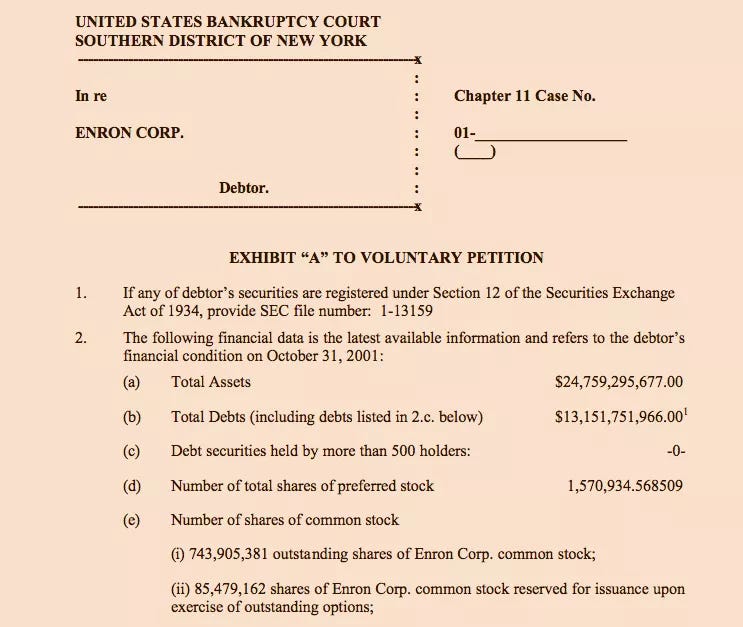
Failure On Strategy and Planning
Finally, one recurring problem in most companies from my experience is the absence of any formal strategic framework for the companies. In the current era of disruption and innovation, not having any comprehensive policy on strategy is foolhardy. Any company that wishes to survive and adapt must strive to remain relevant through strategies. To this effect, the following best practices must be adopted and reviewed on yearly basis by boards of companies:
- The board should adopt a plan detailing the strategic priorities for the company and how it expects this to be actualized.
- It must also dedicate enough time to strategy planning and must as a matter of urgency define annually the most significant issues facing the company in order to build extensive regular discussion of these issues into the Board meeting agenda.
When this is done, the company’s performance, relative to the general state of the economy, is bound to improve.
The Bottom Line
Issues around a company’s failure or success is neither here nor there, since there are different economic, social or even political factors that may influence a company’s existence over a period of time, but the principles of building a sustainable company are almost always the same. Some of these principles as discussed above are so important that a company wishing to build a long-lasting legacy cannot do without them.
On the other hand, small companies seem, however, to be having a hard time understanding that a company is a separate legal entity from the owners, an issue which they must quickly address, if the future would be any near brighter for them.
Reviewing the effectiveness of every company’s board is a good way to start towards building a sustainable company in Africa.
Charles Rapulu Udoh

Charles Rapulu Udoh is a Lagos-based Lawyer with special focus on Business Law, Intellectual Property Rights, Entertainment and Technology Law. He is also an award-winning writer. Working for notable organizations so far has exposed him to some of industry best practices in business, finance strategies, law, dispute resolution, and data analytics both in Nigeria and across the world
Charles Udoh has worked with companies in insurance, finance, banking, leasing, investment funds as well as real estate to strengthen their board effectiveness. He could be reached at udohrapulu@gmail.com or charles@teamnominees.com

